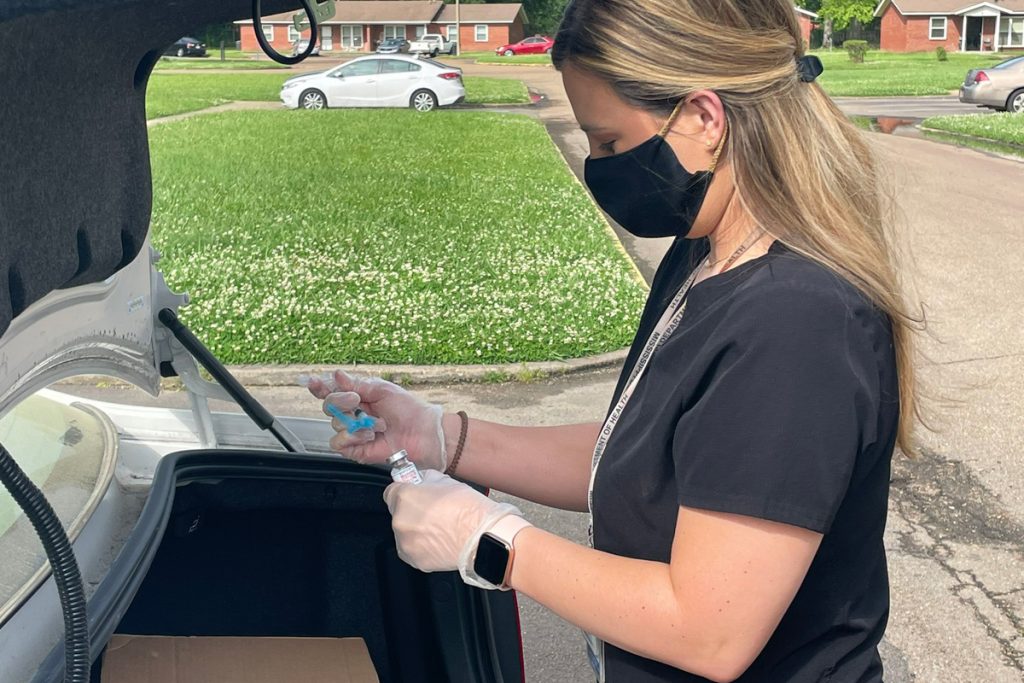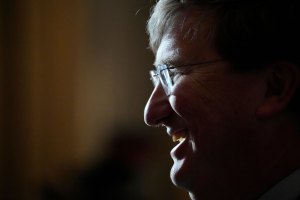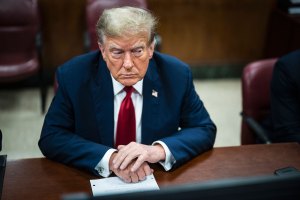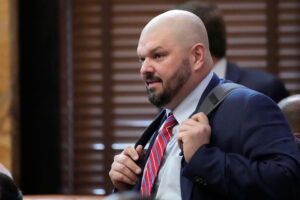The coronavirus found Pastor Odee Akines fast. Akines, of Abundant Grace Temple Church in Forest, Miss., spent more than two months in a COVID-19-induced coma in April 2020, fighting for his life while family and congregation alike prayed for him.
“After spending 80 days (in the hospital), I didn’t know whether I was gonna live or die. The doctors gave me a 2 percent chance of making it. And coming from a faith-based Church, I thank God for a praying family. I attribute my being here now to the prayers of my family,” Akines said.
The pastor shared his story in an online forum organized by the U.S. Department of Health and Human Services and the Federal Emergency Management Agency, exploring the state’s ongoing vaccination effort and the reasons for its slowdown.
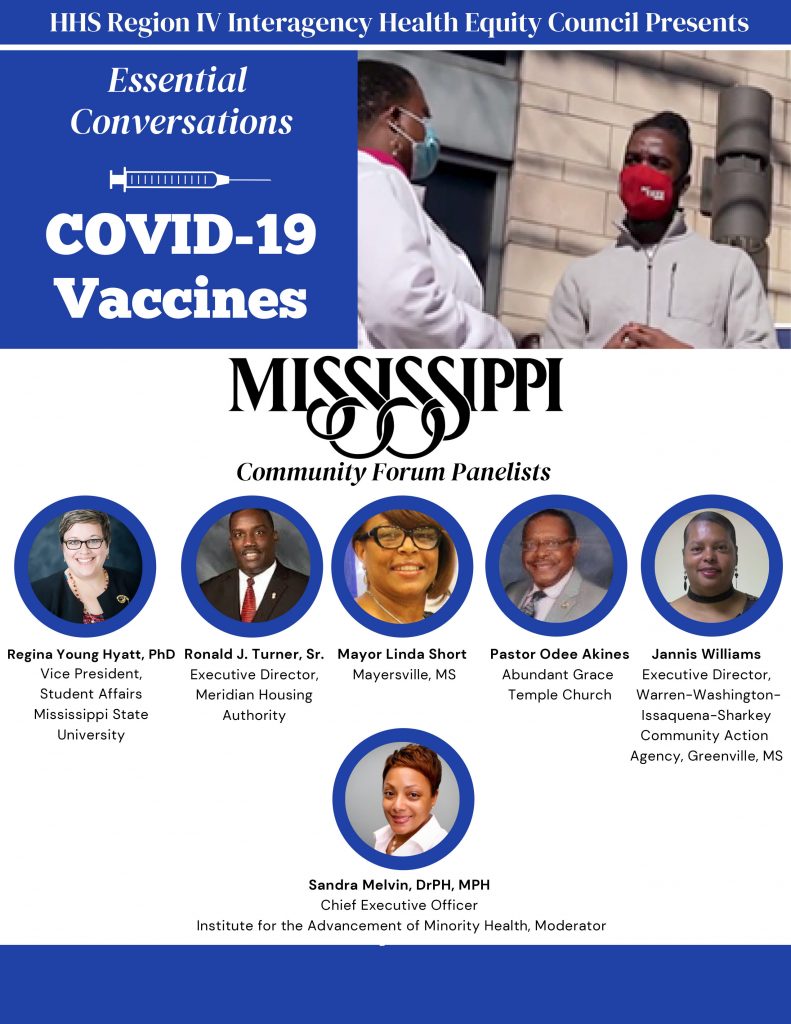
After COVID-19 brought him to the brink of death, Akines’ recovery was slow. “I had to learn how to walk all over again. I was on a ventilator—I had tubing in my stomach. By the grace of God I came through,” he said.
Now, Akines is repaying that grace by advocating to protect others. “When I got out, I started working and advocating for the importance of taking the vaccine,” he said last night.
The pastor is one powerful actor in the next stage of Mississippi’s vaccination strategy. With the state’s vaccine rush well in the rear-view mirror, individual advocates embedded in communities—like Akines—are key to the Mississippi State Department of Health’s plan to vaccinate both the skeptical and the indifferent.
Access Issues Addressed?
State Health Officer Dr. Thomas Dobbs addressed the public in the same event. “In some ways we’ve done a pretty remarkable job, getting folks vaccinated,” he said. “We’ve given almost 2 million doses of vaccine. And we’ve had over 1 million of our almost 3 million people receive at least one dose of vaccine.”
But Dobbs acknowledged the reality that Mississippi is still in last place in the nation, lagging well behind every other state in enthusiasm for the vaccine. As Mississippi Today reported, the state has returned or diverted more than 870,000 usable doses of COVID-19 vaccine due to lack of demand. Those doses could have vaccinated nearly all eligible Mississippians—children under 12 still being ineligible for a shot—but demand for long-term protection against COVID-19 has dwindled week after week.
Physical access, increasingly, is less and less of an issue for Mississippians who have yet to be vaccinated. Mayor Linda Short, of Mayersville in sparsely populated Issaquena County, explained the two primary ways the rural county expanded vaccine access to residents.
“I felt the need to lead by example. I volunteered for 13 weeks at our county’s drive-through vaccination site. We gave vaccinations to 2,300 citizens,” she said Monday. Short helped staff the only vaccination site in the state entirely run by volunteers, located in the state’s smallest county by population. In addition, earlier in June, MSDH held a pop-up vaccination site in Mayersville.
Surveys have shown that much of the remaining vaccination hesitancy in Mississippi is related to the perceived cost of the vaccine. For some, this is a matter of confusion over the vaccine’s cost—free of charge at any state site, and with a minor fee for the injection at some private clinics.
For others, it is a question of time spent away from work recovering from the side effects, or the expense and transportation of simply getting to the vaccine clinics.
Incentives—including free transportation, lotteries, gift cards and other inducements—could help balance that math in favor of the shot.
Vaccine Indifference
Dr. Regina Young Hyatt, vice president for student affairs at Mississippi State University, is coordinating the public university’s safe-return strategy for the coming fall. As restrictions continue to loosen, preventing a coronavirus surge in unvaccinated students could be the difference between the first undisrupted school semester and another year of quarantines and virtual classes for many.
Educating students overly afraid of side effects or long-term harm from the vaccines is one strategy, Hyatt said, but increasingly she finds herself dealing with a different kind of resistance.
“Students have expressed to us, not necessarily vaccine hesitancy, but more what we are calling vaccine indifference,” she said last night. “They are not necessarily opposed to getting vaccinated, but not certain or not in a hurry to get vaccinated. We have been pressing on that particular point.”
Therein lies the struggle that Mississippi finds itself in. While some firmly against the vaccine still remain, surveys show a vast population of the indifferent and the ambivalent are a far more persuadable target for education—and incentives.
Janiss Williams is the executive director of Warren-Washington-Issaquena-Sharkey Community Action Agency, a community-services organization based in Greenville, Miss. As the vaccine became more available to Mississippi residents, Williams surveyed her own employees to see how well protected both they and the clients the agency serves would be in the case of another surge.
“I was really shocked at the results,” Williams said. “I really thought that we would have more people who would want to be vaccinated. Because we’ve all had some personal experiences with COVID-19. I lost a sister-in-law and a close friend.”
Williams found that half of her staff had been vaccinated, higher than the statewide average. Of the half remaining, 25% indicated a possible interest in the vaccine.
Williams began to offer incentives to staff members who have been vaccinated—including days off. These small concessions to the vaccine-indifferent worked well, Williams said.
Young-Hyatt is pushing for similar incentivizing projects to reach MSU students as well.
“We’re discussing things like free tuition or parking decals … things that we can do to encourage students to get vaccinated,” she said. “We encourage students to understand that if they are vaccinated, They don’t have to quarantine unless they’re symptomatic if they’re exposed to someone with COVID-19.”
For some, the declining pandemic has drained the urgency from getting vaccinated. Others, like Akines, who have suffered greatly from the virus, have a different story to tell. “This is our shot,” Akines said. “This is our shot at living. To all those listening—please take the vaccine.”


